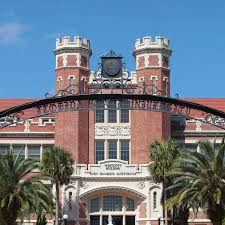Speaker
Description
Artificial Intelligence (AI) and Machine Learning (ML) are rapidly developing fields providing data-driven algorithms to predict, classify, and make decisions based on data. ML techniques are widely used across the physical sciences in order to learn from the vast amount of data collected and have been implemented in nearly every aspect of Nuclear Physics research. In contrast to traditional analysis tools, these algorithms often use less computing resources, can learn from sparse data, and are less prone to human errors. This talk will summarize current applications of ML in experimental and theoretical nuclear physics, as well as accelerator applications, with a special emphasis on interpretability and uncertainty quantification.
| speaker affiliation | Jefferson Lab |
|---|

